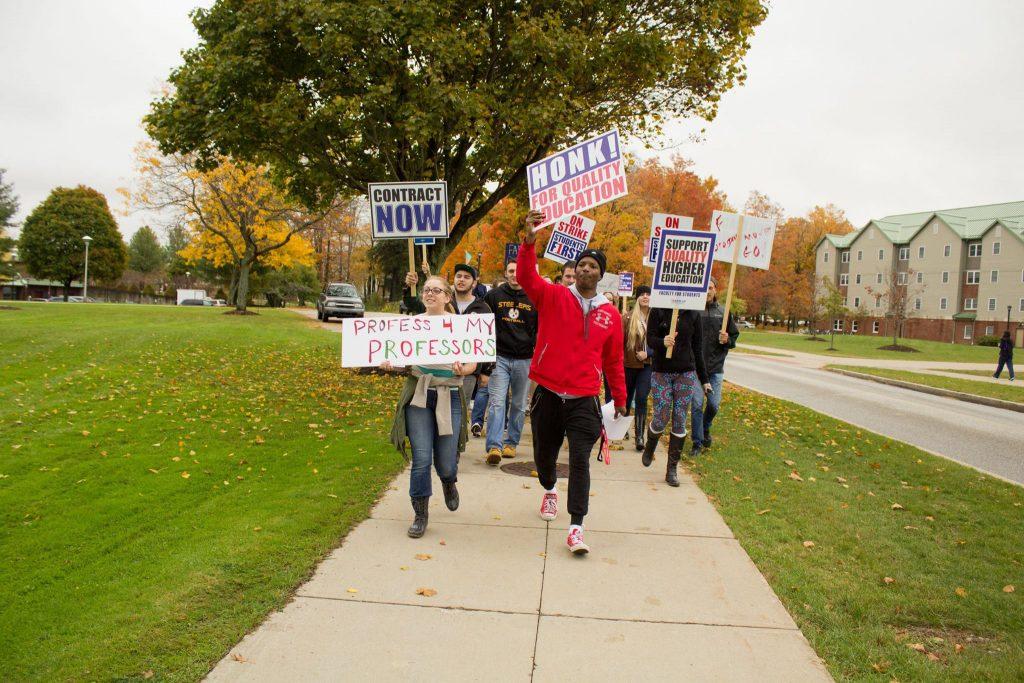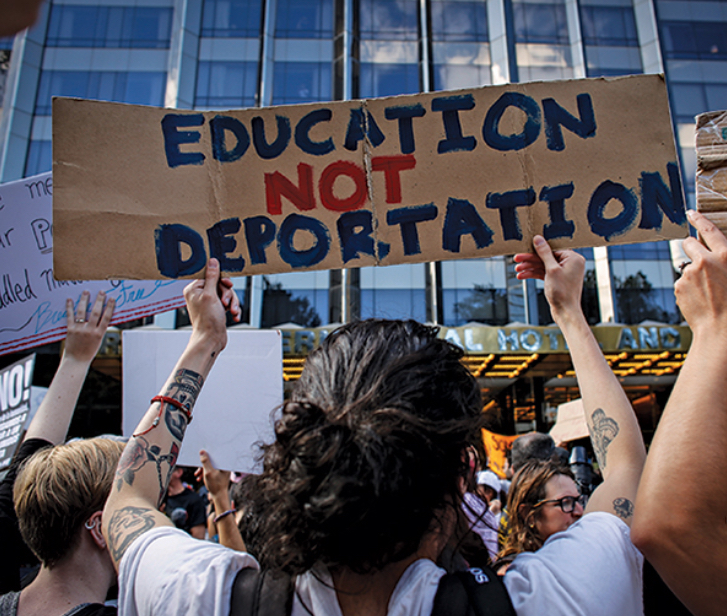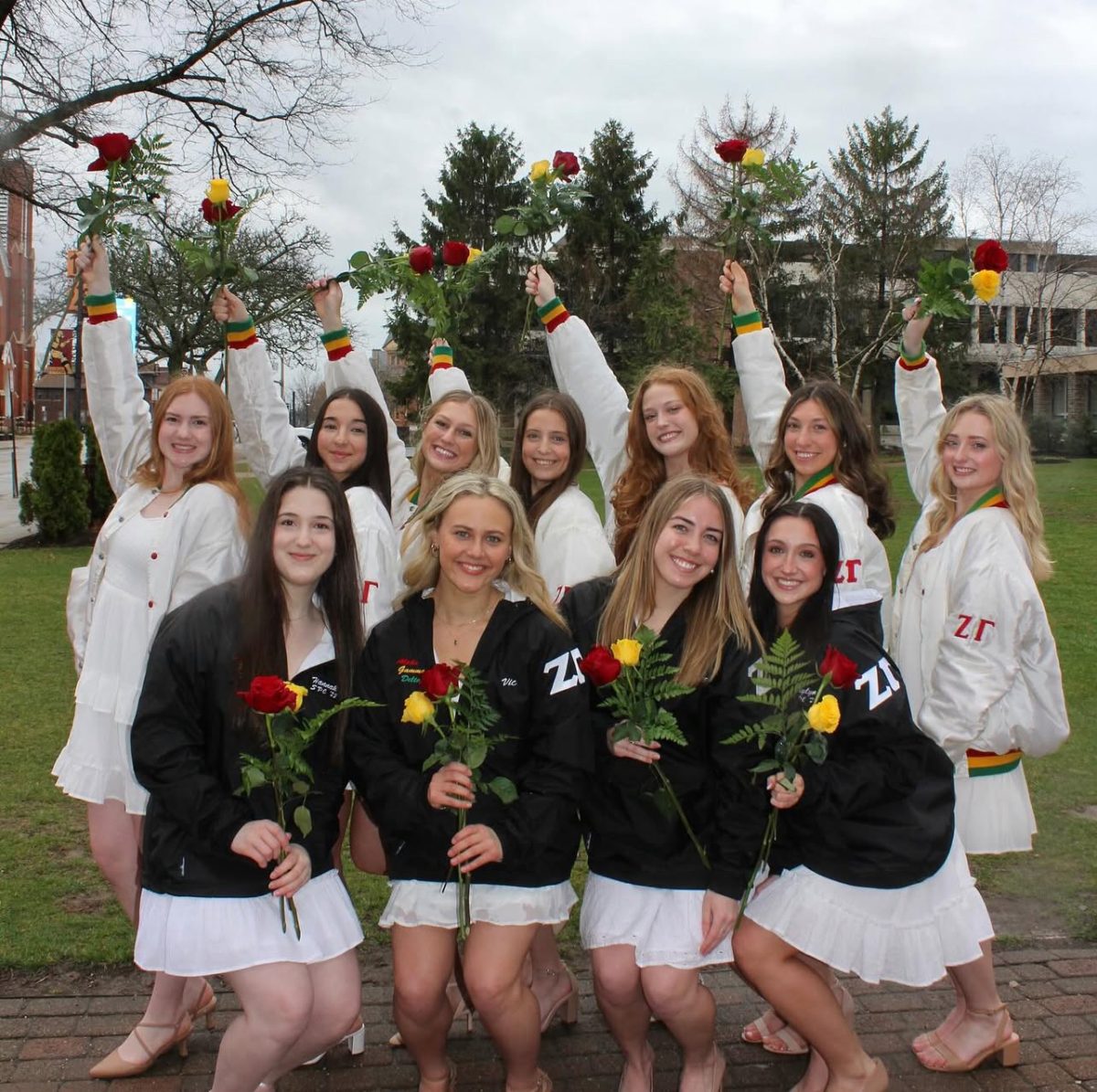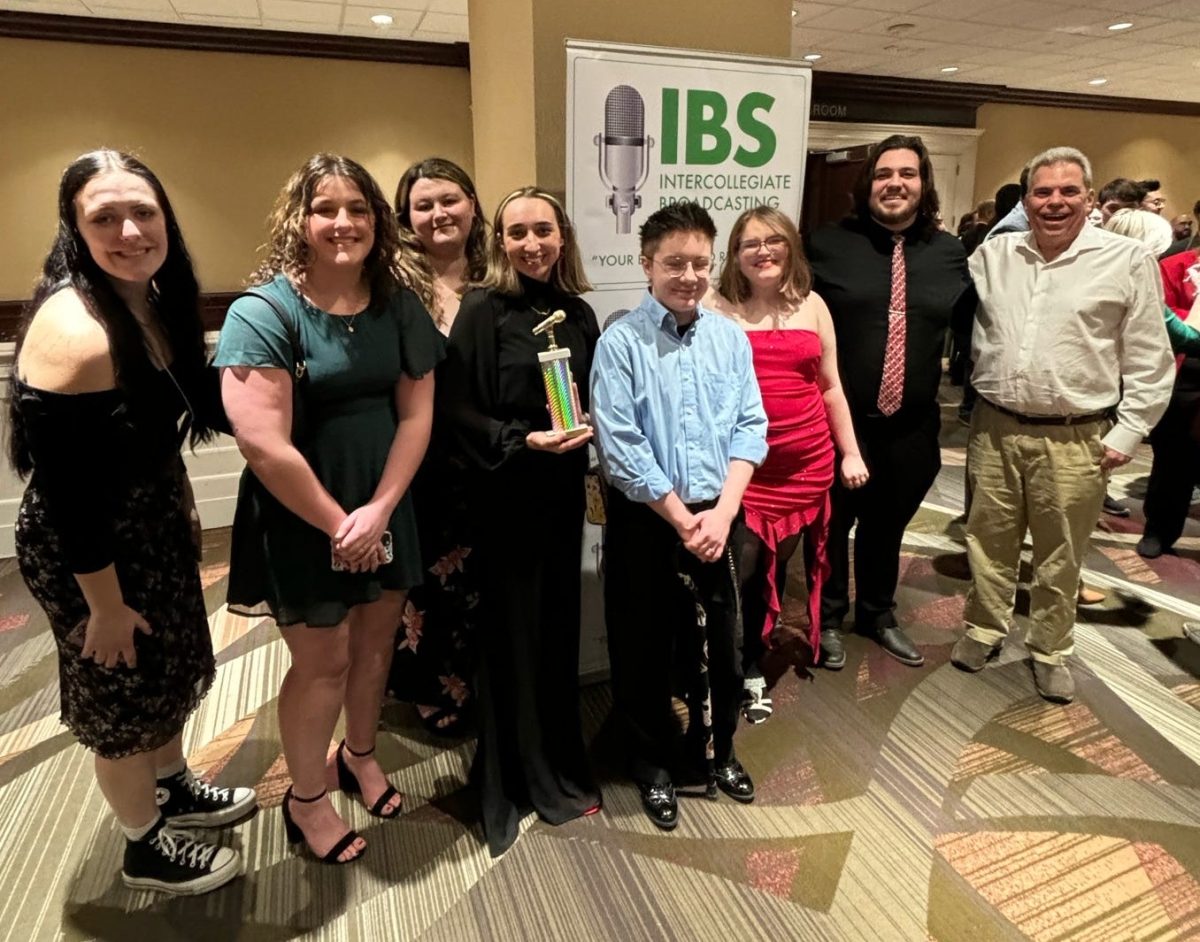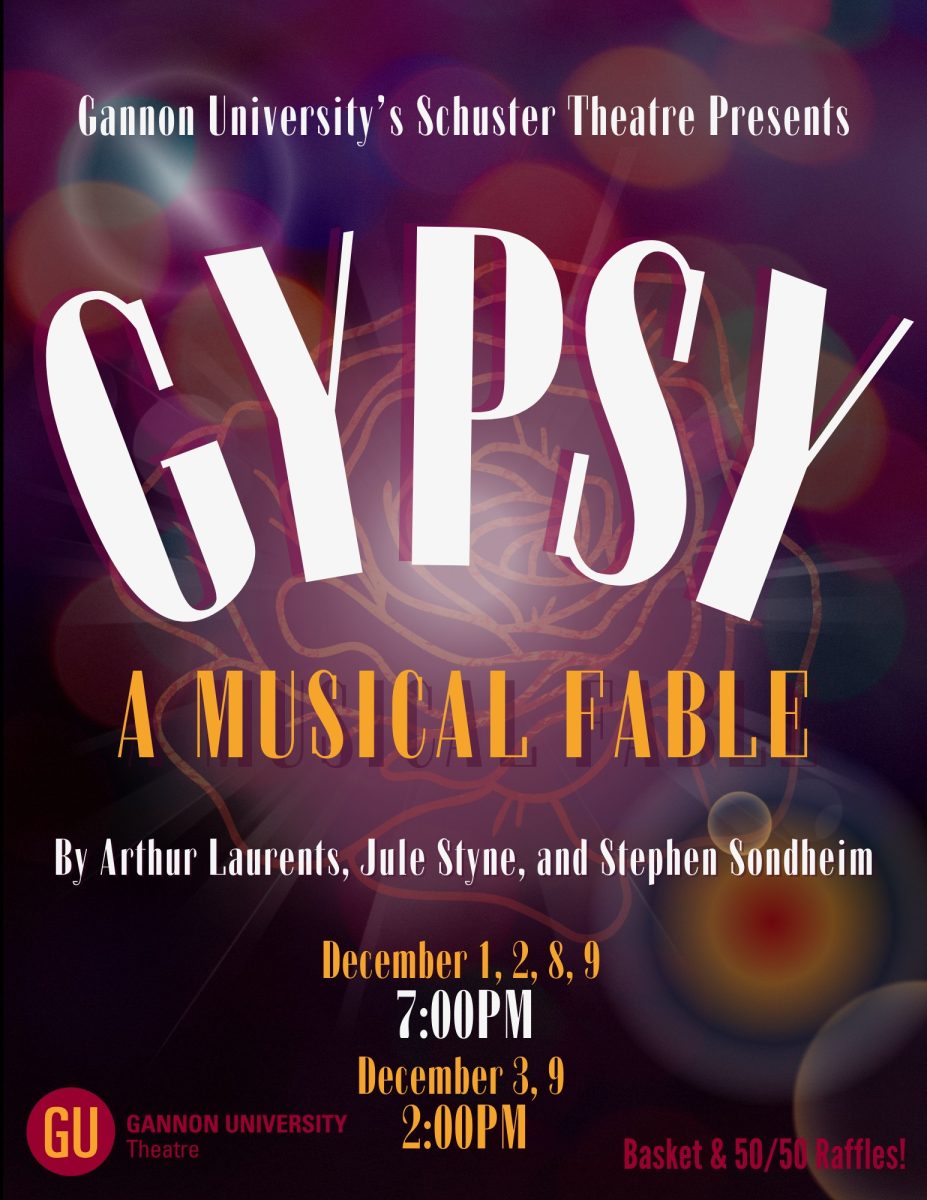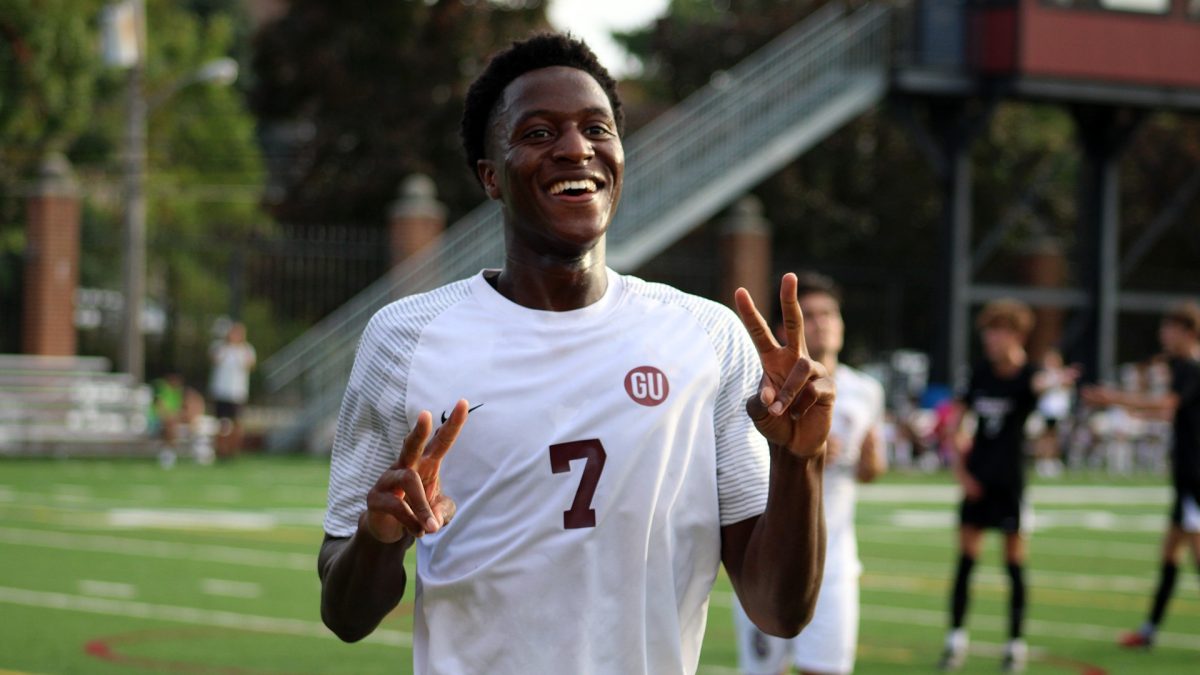Protesters laid down their picket signs after a three-day strike ended when the Association of Pennsylvania State College Faculty (APSCUF) and Pennsylvania’s State System of Higher Education announced a tentative contract Friday.
The APSCUF strike began Oct. 19 at 14 state colleges, including nearby institutions like Edinboro University and Slippery Rock University.
The contract state college faculty were using before the strike expired June 30, 2015, and a new agreement had not been reached yet.
Faculty and staff were protesting State System proposals that focused on protecting adjunct professors among other changes, according to APSCUF.
Jeff Bloodworth, Ph.D., an associate professor of history at Gannon University, said moving college staff to an adjunct-focused system is the worst idea in the world.
Em Giering, a senior English major at Edinboro, disagreed, saying adjuncts are just as qualified to teach.
“APSCUF wants you to think that this strike is only about online classes being expanded to incorporate a changing student demographic and, God forbid, adjuncts being able to teach,” Giering said. “Gasp, what if they don’t have a doctorate?”
Giering said she sees her professors as white-collar workers and did not believe the strike would solve anything.
“[The strike] was the higher ed equivalent of a toddler’s temper tantrum — brought on by frustration and being denied things they probably really didn’t need in the first place,” Giering said.
Bloodworth said he was conflicted to see the strike because the APSCUF is a white-collar union.
“There’s not a whole lot of sympathy for white-collar workers,” Bloodworth said. “Professors are not coal miners.”
Professors don’t need to be unionized, especially those with tenured protection, he added.
“The problem with unionized universities is that faculty are going to be so much more resistant to change because they can be,” Bloodworth said.
The change he was referring to is the changing marketplace in the U.S. university system.
He said negotiating salary is a legitimate concern, although the figures can be misleading.
“In Philadelphia, that number goes a lot less [far] than it does in Erie,” Bloodworth said. “[They’re making] a modest request, ‘Can we have pay increases that almost keep up with the cost of living?’”
Giering said she does not see how the APSCUF can claim the negotiations will help students, when they may translate into higher education costs.
“Edinboro professors are generally wonderful, and I felt sad to go against their decision, but at the same time, I’m a student who paid tuition, and each class I miss costs, at the minimum, $130.
“No one knows how long it will go on. Imagine being someone who is about to graduate, or someone who is in deep debt and worried about the semester being canceled.”
Giering said the only way to truly help students would be salary negotiations at the university level, which would keep professors in their classrooms.
Phil Kelly, D.A., a professor in Gannon’s English department, said students are probably the hardest part to factor in during teachers union contract disputes.
“I always think about the students,” Kelly said.
Although three days is no longer than a mid-semester break, Kelly said missing time in higher education is difficult to make up because higher education does not have the flexible schedule of elementary or high schools.
“If the strike went on for some time, it would be interesting to see student attitudes change,” Kelly said.
Bloodworth said he kind of expected the strike to be brief.
“It was in nobody’s interest for the strike to continue,” Bloodworth said. “I’m not sure how well it turned out for them; I imagine they feel like they have their backs against the wall.
“It’s a tough time to be a public employee in an economy that hasn’t been great.”
Ben Janidlo, a junior criminal justice major who transferred from Edinboro to Gannon this year, said he never knew the strike was coming. When the strike started, Janidlo said he noticed the positive support state college faculty received.
“The amount of students protesting alongside the professors shows Edinboro is a tight-knit campus and everyone has everyone’s back,” Janidlo said.
Natalie Miczikus, a senior ceramics major at Edinboro, and one of the students who protested on Edinboro’s campus, said that she participated because she sees her professors as more than just the person who hands out grades.
“I have had professors go above and beyond their call of duty to help myself and other students in any way they can,” she said.
“When I first saw them, I couldn’t help but feel immediate sadness that my mentors – the people who have helped me become the person I am today – were in this position.
“But after speaking to many of them, I began feeling such pride because they were standing up for what’s right.”
Miczikus also said that not only was it a call for change, but it was a learning experience.
“I feel so much closer to my professors and peers than I ever have,” she said. “This experience has showed me that in order to receive change – though it may be a hard fight – it is one worth fighting.
“Professors want the best for students and we want nothing less for our professors.”
Janidlo said he remains skeptical about the effectiveness of the strike.
“I think the government and all people with power are corrupt,” Janidlo said. “The schools could strike until they are blue in the face but in the long run the big wigs will get their way.”
Bloodworth said the system is too bloated for things to smooth out with the contract agreement.
“It’s a Band-Aid,” Bloodworth said. “They’re going to be back at this in five years.”
KELSEY GHERING
[email protected]


